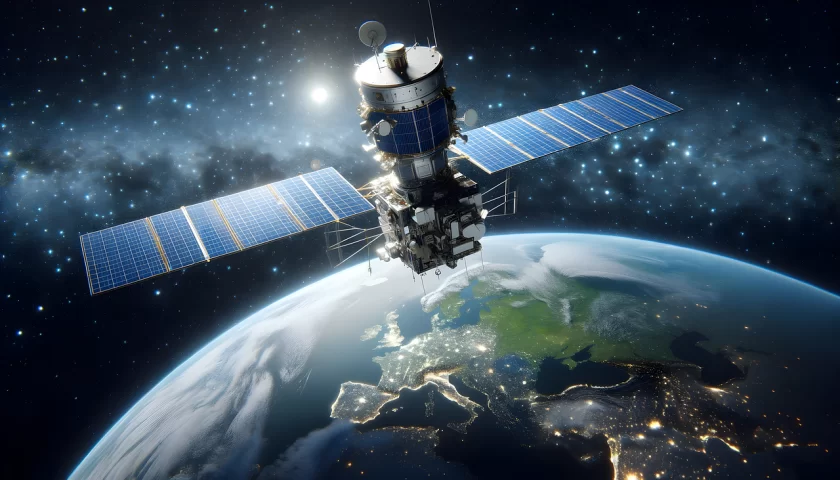The National Space Operations Centre (NSpOC) says that overall risks to UK interests in space and on Earth from space-related threats, risks, and hazards were lower in July than in June with fewer re-entry, conjunction and space weather alerts issued. Whilst the number of re-entry events meeting the alert threshold reduced from a high in June, the number of re-entries monitored remained above average for 2024.
NSpOC reports that all the centre’s warning and protection services functioned as expected throughout the period.
A total of 44 uncontrolled re-entries were monitored by NSpOC in July. This represents 8 percent fewer objects re-entering the Earth’s atmosphere in July than June, but this is still approximately 50 percent above average for the year. NSpOC attributes this trend to the planned decommissioning of small communications satellites and expects this above average trend to continue in August. On 19 July, a US satellite DMSP 5D-2 F8 fragmented, generating five pieces of catalogued debris. Investigations suggest that the main body of the satellite may remain largely intact.
During the whole month of July, NSpOC warned UK-licensed satellite operators of 1,795 potential collision risks. Such warnings enable operators to take critical collision avoidance decisions. Meanwhile, the Met Office issued 27 critical space weather alerts in July, representing a 58 percent decrease from June.
There were 13 new launches in July and a total increase in the US Satellite Catalogue of 143 registered space objects (RSOs). Of those launches, three were performed by SpaceX to deploy an additional 22 Starlink satellites. The remaining 121 RSOs were from previous months or new launches, ISS deployed satellites, or debris newly recorded in the US Satellite Catalogue.
The UK Space Agency released its updated evaluation strategy on 22 August. The strategy notes that “the evidence base for understanding which space interventions work, why, and how is emerging” but warns that research development and innovation in space is challenging to evaluate. It cites the example of the first Active Debris Removal (ADR) mission, which is yet to happen but scheduled to take place in 2025. The UK government first unveiled its Plan for Space Sustainability in 2022 with the aim of tackling the growing volume of debris in space.
For more information




